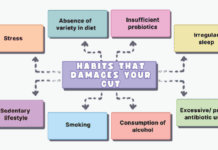ACCORDING to the data and findings from the Health Ministry’s Malaysian Study on Cancer Survival (MySCan), cancer is the fourth most common cause of death in Malaysia. It has approximately 37,000 cases being reported every year and this is estimated to rise to more than 55,000 newly-diagnosed cases by 2030.
The big ‘C’ is reported to be responsible for 12.6% of all deaths in government hospitals and 26.7% in private hospitals.
The data and findings which were released at the recent World Cancer Congress 2018 had also indicated that despite existing screening facilities and programmes, those with breast, cervical and colorectal cancers were coming forward late for treatment at 41.3%, 38.5% and 63.8% respectively – making Malaysia one of the highest mortality to incidence ratio for breast cancer in Southeast Asia.

Leonard Ariff Abdul Shatar, Group Managing Director of Malaysia’s leading pharmaceutical company, Duopharma Biotech Berhad (formerly known as CCM Duopharma Biotech Berhad) (“Duopharma Biotech”), said that besides the late presentation of the disease, insufficient facilities and specialists particularly outside urban areas, and lack of access to innovative surgical, radiotherapeutic and oncological treatments could have also contributed to the rise of these statistics.
“Hence, we are working closely with the relevant authorities and participate in cancer advocacy activities initiated by the Cancer Care Working Group, MAKNA, Pink Ribbon Wellness, hospitals, other cancer-related NGOs and even embarked on commercial engagement with Key Opinion Leaders (KOLs) to address the growing concern for a better understanding of cancer, and to share with people that the disease can be managed if detected early, through quality generic and biosimilar therapeutics,” he added.
Imported drugs
Currently, Malaysia is seen to be heavily dependent on imported cancer drugs to accommodate the needs of its cancer patients and, in the coming years, targeted treatment is expected to grow at a rapid scale and the market value of these drugs will continue to surge.
Targeted treatments are slowly replacing the conventional chemotherapy drugs, as it is clinically proven to be a more effective option to combat cancer with lesser side effects.
Small molecule Inhibitors (Nibs), along with Albumin-bound Nanoparticles (Nabs), Monoclonal antibodies (Mabs) and Proteasome Inhibitors (Mibs) are among the type of oncology medication that target different receptor sites on the cancer cell. Nibs exploits the abnormal characteristics that establishes within cancer cells to carry out its function.
Their small size enables the molecule to penetrate across the cancer cell membrane and act on the intracellular signaling pathway to selectively induce cancer cell death without acting on the healthy cells. Hence, apart from a promising treatment outcome, it will also result in fewer side effects as compared to generalised chemotherapy treatment.
“These targeted treatment drugs contain Highly Potent Active Ingredients (HAPI) which require a dedicated facility equipped with technology suitable for their manufacturing to minimise potential hazard exposure to the operators and cross-contamination between products.
Duopharma Biotech, in collaboration with Natco, a technology partner from India, has already completed the retrofitting of a HAPI plant to manufacture HAPI products,” added Leonard.
Located in HICOM Glenmarie Industrial Park, Shah Alam, the HAPI plant is the first of its kind in Malaysia that has the capacity to manufacture HAPI products classified from OEB 5 and below. The cutting-edge technology plant was completed in November 2018 after qualification inspection in October 2018.
OEB is a process intended to quickly and accurately assign chemicals into specific categories (bands). These bands are assigned based on a chemical’s toxicological potency and the adverse health effects associated with exposure to the chemical.
“We have recently produced our Process Validation Batch for Letrozole to be sent to the National Pharmaceutical Regulatory Agency (NPRA) for approval and once approved, expected this year, the HAPI plant will commercially manufacture Letrozole for the Malaysian market.
“The escalating cost of medication has always been a challenge for the government in order to provide accessibility of effective medication to patients.
Hence, we are expecting to manufacture more oncology drugs in the future based on the demand in Malaysia and other market segments which will ultimately give more affordable access to relevant sought-after oncology drugs for the patients,” explained Leonard.
Duopharma Biotech is also reported to be currently engaging with pharmaceutical companies across the globe to bring in high-end technologies and allowing technology transfer which enables them to locally manufacture high-value drugs. If all goes well, this will further strengthen the company’s position as the leading pharmaceutical player in Malaysia and achieve its target of being a leading pharmaceutical company in Southeast Asia.
Product portfolio
“We are widening our product portfolio in offering not just generic oncology medicines but also generic psychotropic drugs, which is an emerging market in Malaysia nowadays. Duopharma Biotech has already established a strong presence in the anti-psychotic sector and is collaborating with our partners to bring in more locally manufactured psychotropic drugs into our pipelines due to its huge market potential.
“Perhaps, the Ministry of Health would look into providing compulsory licensing for oncology medication such as monoclonal antibody, Tyrosine Kinase Inhibitors (TKIs) and Immunotherapy which will benefit cancer patients immensely as it will enable the industry to provide quality and more affordable generic and biosimilar therapeutics to them,” said Leonard.











